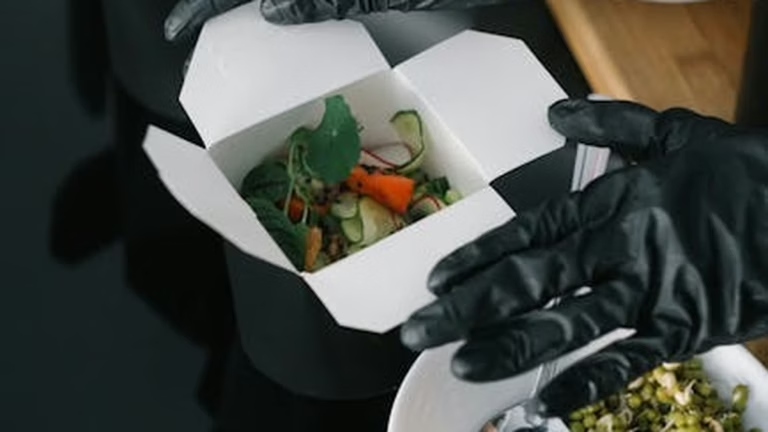Building a Stronger Immune System for Winter: Essential Vitamins and Minerals
Winter is a wonderful time for cozy nights, festive celebrations, and maybe even a snow day or two. But it’s also a time when our immune systems are put to the test. The colder weather, combined with more time spent indoors, creates the perfect environment for germs to thrive. That’s why it’s crucial to proactively support your body’s defenses. This blog post will guide you through the essential vitamins and minerals that can help you build a stronger immune system and stay healthy throughout the winter months.
Why is Winter Hard on Your Immune System?
Several factors contribute to the increased prevalence of illness during winter:
- Lower Vitamin D Levels: Sunlight exposure, which helps our bodies produce vitamin D, is significantly reduced in winter. Vitamin D plays a crucial role in immune function.
- Dry Air: Cold air holds less moisture, leading to drier nasal passages. This dryness can make it easier for viruses and bacteria to enter the body.
- Increased Indoor Time: We tend to spend more time indoors during winter, often in close proximity to others, increasing the risk of transmission of respiratory illnesses.
- Changes in Immune Function: Some studies suggest that the colder temperatures themselves can directly impact immune cell function.
Essential Vitamins for Winter Immunity
Vitamin C: The Immune Booster
Vitamin C is a powerful antioxidant that supports various immune cell functions. It helps protect cells from damage, promotes the production of white blood cells (which fight infection), and aids in wound healing.
Sources: Citrus fruits (oranges, lemons, grapefruits), berries (strawberries, blueberries), bell peppers, broccoli, spinach.
Tip: Consider adding a daily vitamin C supplement, especially if you struggle to get enough through your diet. Look for liposomal vitamin C for better absorption.
Vitamin D: The Sunshine Vitamin
Vitamin D is essential for a healthy immune system. It helps regulate immune responses and plays a role in fighting off infections. As mentioned earlier, sunlight exposure is limited in winter, making supplementation even more important.
Sources: Fatty fish (salmon, tuna, mackerel), fortified foods (milk, cereal, orange juice), egg yolks. However, dietary sources are often insufficient, making supplementation necessary.
Tip: Get your vitamin D levels checked by your doctor to determine the appropriate dosage. Vitamin D3 is generally considered the most effective form for supplementation.
Vitamin E: The Antioxidant Protector
Vitamin E is another potent antioxidant that helps protect cells from damage caused by free radicals. It also supports immune cell function and may help reduce the severity of respiratory infections.
Sources: Nuts (almonds, peanuts, sunflower seeds), seeds, vegetable oils (wheat germ oil, sunflower oil), spinach, broccoli.
Tip: Choose vitamin E supplements with mixed tocopherols for a broader range of antioxidant benefits.
Vitamin A: The Barrier Defender
Vitamin A supports the health of the mucous membranes lining your respiratory and digestive tracts. These membranes act as a barrier against pathogens, preventing them from entering the body.
Sources: Sweet potatoes, carrots, spinach, kale, liver, dairy products.
Tip: Focus on beta-carotene-rich foods, as your body converts beta-carotene into vitamin A as needed, reducing the risk of toxicity.
Essential Minerals for Winter Immunity
Zinc: The Immune Regulator
Zinc is crucial for immune cell development and function. It helps regulate the immune response and may shorten the duration of colds.
Sources: Oysters, beef, poultry, beans, nuts, whole grains.
Tip: Consider taking zinc lozenges at the first sign of a cold to help reduce its severity and duration. Be careful not to exceed the recommended daily dosage, as excessive zinc intake can interfere with copper absorption.
Selenium: The Antioxidant Enhancer
Selenium is an essential mineral that supports immune function by acting as an antioxidant and helping to regulate immune cell activity. It works synergistically with vitamin E.
Sources: Brazil nuts, tuna, halibut, eggs, sunflower seeds.
Tip: Eating just one or two Brazil nuts per day can provide a significant boost to your selenium intake.
Iron: The Oxygen Carrier
Iron is vital for transporting oxygen throughout the body, which is essential for immune cell function. Iron deficiency can impair immune responses.
Sources: Red meat, poultry, beans, lentils, spinach, fortified cereals.
Tip: If you suspect you may be iron deficient, consult your doctor for testing and supplementation recommendations. Combine iron-rich foods with vitamin C to enhance absorption.
Beyond Vitamins and Minerals: Lifestyle Tips for Winter Immunity
While vitamins and minerals are crucial, a healthy lifestyle is equally important for a strong immune system:
- Get enough sleep: Aim for 7-8 hours of quality sleep per night.
- Manage stress: Practice relaxation techniques like meditation or yoga.
- Eat a balanced diet: Focus on whole, unprocessed foods.
- Stay hydrated: Drink plenty of water throughout the day.
- Exercise regularly: Aim for at least 30 minutes of moderate-intensity exercise most days of the week.
- Practice good hygiene: Wash your hands frequently and avoid touching your face.
Conclusion
Building a strong immune system is an ongoing process, and winter is the perfect time to prioritize your health. By incorporating these essential vitamins and minerals into your diet and adopting healthy lifestyle habits, you can significantly boost your body’s defenses and stay healthy and vibrant throughout the winter season. Remember to consult with your doctor or a registered dietitian before making significant changes to your diet or supplement regimen.






